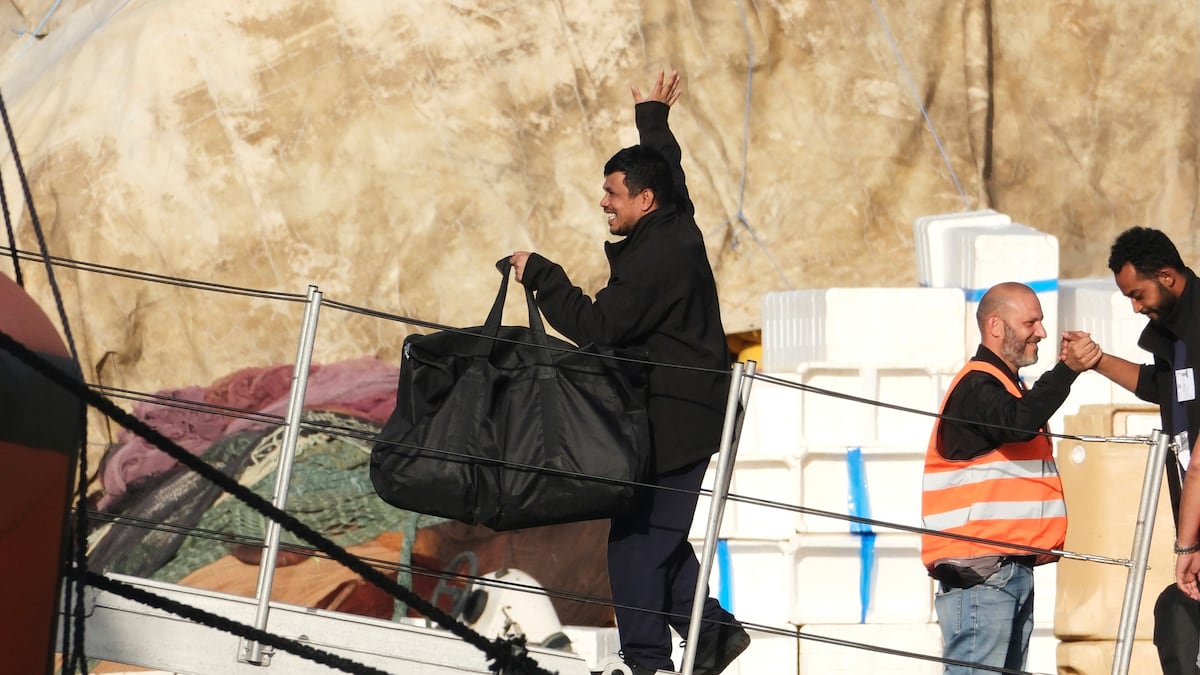A court in Bologna has ended up doing something that sooner or later would happen, after the legal clash over the deportations of migrants from Italy to Albania: referring the conflict between European and Italian asylum rules to the Court of Justice of the EU so that clarify which ones should prevail. But the news has had more impact because the judges have expressed themselves in a very forceful way, according to what the newspaper has revealed. Corriere della Sera. They propose that, with the criteria used by the far-right Government of Giorgia Meloni to consider that the country of origin of an asylum seeker is safe, even if there are persecuted minorities there, Nazi Germany could also be considered like this: “You could say, Paradoxically, the Germany of the Nazi regime was an extremely safe country for the vast majority of the German population: except for Jews, homosexuals, political opponents, the Roma ethnic group and other minority groups, more than 60 million Germans enjoyed enviable security. And the same could be said of Italy in the fascist regime,” reads the sentence, reported by several Italian media.
In this way, a new chapter in the confrontation between the Government and the Italian magistrates is inaugurated in style. Waiting for what the European court now says, and while the Executive in Rome prepares a second deportation. Because, ultimately, what the Bolognese court is asking is to be told if it should disobey the new decree law that Meloni has approved to force the transfers to Albania. It requests that the Luxembourg court clarify whether “the judge’s duty not to apply the act of designation” of a country as safe, when it is not safe according to European criteria, “remains also in the event that it is applied with provisions of rank primary, as an ordinary law”, that is, in this case according to Italian laws.
The legal conflict arises from a recent European ruling on October 4, which established that if in a country there is an area with rights violations or a minority that suffers them, the entire country must be considered unsafe. It was a bomb for him Albania plan de Meloni: with that criterion, only 7 of the 22 countries that Italy considered safe fell into that category. Therefore, the controversial rapid expulsion protocol provided for in the Balkan country could not be applied to migrants who came from other countries – and they were all the main origins of arrivals by sea, such as Egypt, Tunisia or Bangladesh. The entire system is based on this concept of a safe country, called to focus the debate in the coming months, also throughout the EU. A safe country is one that, according to Italy’s assessment for this speedy procedure, respects human rights and whose citizens are likely to be denied an asylum request. This justifies holding them at the border, or in Albania, and after a quick rejection of their request, repatriating them.
But the European ruling left the plan affected, which in each case goes through a judge who must give approval. It became evident when the authorities wanted to validate the detention at the border, in this case in Albania, of the first 12 migrants held in the Gjadër internment camp: the Court of Rome rejected it on October 18, relying precisely on the sentence European. These people were from Bangladesh and Egypt, countries where there are threatened minorities.
The Italian Government was furious and assured that the judges had not “understood the sentence properly”, among other things, “because it was in French”. Furthermore, he stressed, which is true, that European legislation will change in 2026, when the new and controversial migration pact approved this year comes into force and, therefore, what Italy and its concept of a country of origin is now doing “will surely partial”, will be what the entire EU does and imitates. In any case, that will be in 2026 and at the moment the current European regulations, from 2013, apply.
Conflict between legal norms
Meloni did not give up and approved a decree law to force the judges to validate the following three days after the failure of the first deportation to Albania. It is a higher standard than the previous one in force and he stressed that it was mandatory for magistrates to comply. The Executive did partially accept the arguments of the European ruling and reduced the list of safe countries to 19, removing Nigeria, Cameroon and Colombia, where there are areas with rights violations. That is, it accepted the geographical criterion that if a part of a territory is not safe, the entire country is not safe either, but it assumed the parallel criterion for persecuted minorities: it continued to leave 12 countries on its list where there are risk groups, for reasons of ethnicity, sex, religion or politics.
The conflict was evident, since the community standard prevails over the national one. It was expected that the next judge faced with a similar file would raise the issue to the European court, and it was in Bologna, with another Bangladeshi citizen. “If a country were to be considered safe when security is guaranteed for the general population, the legal notion of a safe country of origin could be applied to almost all countries in the world, and would therefore be a notion deprived of any legal consistency,” argue the Italian judges. They indicate that “except in exceptional cases”, and cites Ceaucescu’s Romania and Pol Pot’s Cambodia, “persecution is always carried out by a majority against some minorities, sometimes very small.”
The Bolognese order also points out that the French Council of State has rejected Senegal and Ghana as safe countries (as Italy does on its list), because there is persecution of LGTBI people there, and the British Supreme Court has also done the same with Jamaica, for the same reasons. For this reason, the Italian judges ask the European court to clarify “whether the presence of forms of persecution or exposure to serious harm concerning a single social group that is difficult to identify, such as LGTBI people, ethnic or religious minorities, women exposed to gender violence or trafficking”, excludes the designation of a country as safe.







